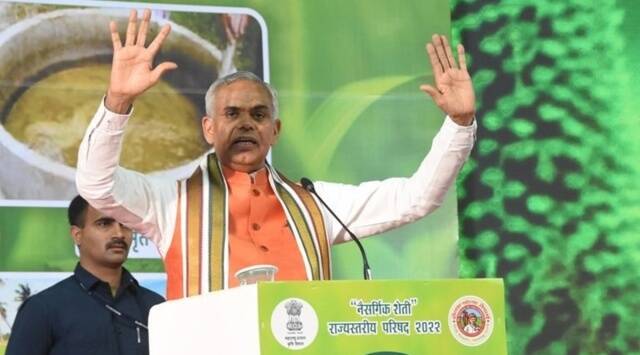Welcome to RajkotUpdates.news! Today we’re diving into the history of Gujarat Vidyapeeth, the prestigious educational institution founded by none other than Mahatma Gandhi in 1920. With its rich heritage and commitment to education as a tool for social transformation, Gujarat Vidyapeeth has left an indelible mark on the Indian educational landscape. In this article, we’ll explore its founding principles, current status and upcoming event inviting Governor Acharya Devvrat. So sit back, relax and let’s delve into the world of Gujarat Vidyapeeth!
Gujarat Vidyapeeth by Mahatma Gandhi in 1920
Mahatma Gandhi founded Gujarat Vidyapeeth with the vision of creating an institution that would promote education as a means to empower individuals and uplift society. He wanted to establish an educational system that was rooted in Indian culture, values, and traditions but also catered to modern needs.
Gandhi’s philosophy of Nai Talim or “New Education” emphasized learning through practical experience and hands-on training rather than rote memorization. This approach aimed at removing the class divide between intellectual and manual labor by merging both forms of knowledge.
The curriculum at Gujarat Vidyapeeth focused on crafts, hygiene, agriculture, spinning wheel (charkha) weaving, rural reconstruction among other things. It encouraged students to become self-sufficient while promoting community service.
Gujarat Vidyapeeth played a significant role in India’s freedom struggle by becoming a platform for nonviolent protests against British rule. Many notable figures such as Sardar Patel were associated with the institution.
Today, Gujarat Vidyapeeth continues its legacy of promoting inclusive education through its various programs like undergraduate courses in arts & science faculties along with postgraduate programs in 22 subjects across several disciplines including management studies and social work.
What is the current status of Gujarat Vidyapeeth?
Gujarat Vidyapeeth, founded by Mahatma Gandhi in 1920, is a deemed university located in Ahmedabad. The institution has been at the forefront of Indian national education since its inception and continues to uphold Gandhian principles.
Today, Gujarat Vidyapeeth offers undergraduate and postgraduate programs across various faculties such as arts, science, commerce, engineering and technology. It also provides research opportunities and doctoral programs for students who wish to pursue higher studies.
Apart from academics, Gujarat Vidyapeeth promotes social service activities through its National Service Scheme (NSS) and Community Development Cell (CDC). These initiatives encourage students to engage with society by participating in various outreach programs such as blood donation drives and awareness campaigns for health issues.
The current status of Gujarat Vidyapeeth is that it remains an active academic institution that values holistic development of its students along with excellence in education. Its commitment towards fulfilling the vision of Mahatma Gandhi makes it a unique learning experience for all those who aspire to be responsible citizens of India.
Who was the founder of Gujarat Vidyapeeth?
Gujarat Vidyapeeth, a university located in Ahmedabad, India, was founded by Mahatma Gandhi in 1920. The institution aimed to provide education that would be accessible to all sections of society regardless of their socio-economic background or caste.
Mahatma Gandhi’s vision for Gujarat Vidyapeeth focused on promoting the use of indigenous knowledge and languages rather than relying on Western education models. He believed that this approach would help preserve India’s cultural identity while providing quality education at the same time.
The philosophy behind Gujarat Vidyapeeth was based on principles like non-violence, self-reliance, and social service which were also central tenets of Mahatma Gandhi’s ideology.
The institution initially offered courses in various fields such as arts, science, commerce and vocational training but later expanded to include subjects like law and journalism as well.
Today,Gujarat Vidyapeeth is known for its commitment towards community engagement through various programs related to rural development and social welfare. Its goal remains true to its founder’s vision – to create an educational model that is inclusive and socially responsible.
When was Gujarat Vidyapeeth founded?
Gujarat Vidyapeeth is a prestigious institution of higher education that was founded by Mahatma Gandhi in 1920. This university’s establishment came at the height of the Indian freedom struggle when there was an urgent need for India to have its own educational institutions that could provide innovative and practical education to students.
Mahatma Gandhi established Gujarat Vidyapeeth with the aim of creating a unique educational system based on Indian values, culture, and traditions. It would help Indians become self-reliant and develop leadership skills necessary for their country’s future development.
The foundation ceremony took place on October 18th, 1920, with leaders such as Sardar Vallabhbhai Patel and C.
F. Andrews attending. The event marked a new chapter in Indian history as it signaled the start of a movement towards independence through education.
In its early days, Gujarat Vidyapeeth focused mainly on providing basic education to rural communities while also imparting vocational training skills to enable them to be self-sufficient. However, over time it has grown into one of India’s premier universities offering degrees at all levels across various disciplines.
Today, Gujarat Vidyapeeth continues to be an important center of learning where students can acquire not only academic knowledge but also learn about social responsibility and community service – qualities that are essential for becoming well-rounded individuals who contribute positively to society.
What is the significance of Gujarat Vidyapeeth?
Gujarat Vidyapeeth, founded by Mahatma Gandhi in 1920, holds a significant place in Indian history. The institution was established with the aim of promoting national education and self-reliance. It offered courses that emphasized traditional Indian values and culture while also providing modern education.
One of the significant aspects of Gujarat Vidyapeeth is its role in India’s freedom struggle. The institute played an essential part in mobilizing people through non-violent means against British colonialism. It also served as a platform for leaders like Sardar Vallabhbhai Patel, Vinoba Bhave, and Morarji Desai to hone their leadership skills.
Besides playing a pivotal role during the independence movement, Gujarat Vidyapeeth has contributed significantly to society by promoting rural development activities such as cottage industries and agriculture. Additionally, it has been instrumental in helping women gain access to education at all levels.
Today, Gujarat Vidyapeeth continues to promote national integration through its educational programs while striving towards sustainable development practices. Its emphasis on Gandhian values remains relevant even after nearly 100 years since its inception.
Gujarat Vidyapeeth’s significance lies not only in its historical context but also in its continued efforts towards social reform through inclusive and sustainable educational practices.
Conclusion
Gujarat Vidyapeeth by Mahatma Gandhi in 1920 was a revolutionary institution that aimed to provide education to all sections of society regardless of caste and creed. The founder’s vision was to create a self-sufficient and self-reliant society through the means of education. Today, Gujarat Vidyapeeth has grown into a renowned university with numerous courses offered in various fields.
The invitation extended by Gujarat Vidyapeeth to Governor Acharya Devvrat is an important step towards strengthening the relationship between the university and the state government. It shows that institutions like Gujarat Vidyapeeth are committed to promoting education at all levels.
It is evident that Gujarat Vidyapeeth continues to play an integral role in shaping India’s educational landscape today. With its rich history, strong values, and dedication towards social justice, it remains one of the most revered institutions in India.

